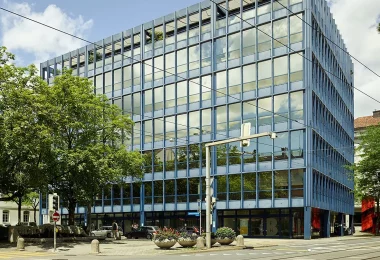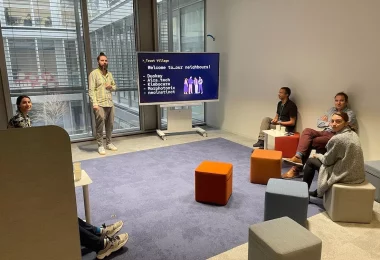In Lausanne, the EPFL’s Center for Intelligent Systems melds AI, robotics, and interdisciplinary research, fostering a realm of innovation and collaborative endeavors across academia and industry.
By the shores of Lake Geneva lies the Center for Intelligent Systems (CIS) of the Swiss Federal Institute of Technology (EPFL). Established in October 2019, the Center embodies a joint initiative encompassing five distinguished faculties: Architecture, Civil and Environmental Engineering (ENAC), Computer and Communication Sciences (IC), Basic Sciences (SB), Engineering (STI) and Life Sciences (SV).
Helmed by Executive Director Jan Kerschgens, CIS is a testament to EPFL’s interdisciplinary synergy, fueling forward-thinking research in Artificial Intelligence (AI), Machine Learning (ML), and Robotics. The vibrant community at CIS, comprising faculty members, researchers, and students, is united by a common thread: a fervor to push the envelope of intelligent systems—systems designed to sense, learn, and adapt to their environment.
CIS stands not merely as a research hub, but as a fertile ground where ideas cross-pollinate, spawning integrative research streams destined to propel the development of intelligent systems into new horizons. These systems, armed with the ability to perceive their environment, learn from the amassed data, and adeptly adapt to an ever-changing world, are envisioned to revolutionize sectors spanning manufacturing to healthcare and beyond.
A confluence of minds
Since its inception, CIS has embarked on a trajectory of ceaseless innovation, elucidated by six integrative research pillars it has pioneered: “AI for Medicine”, “Intelligent Assistive Robotics”, “Decentralized Edge AI Infrastructure”, “Digital Twin”, “AI for Molecular Design”, and “AI for Environmental Processes”. Each pillar epitomizes a confluence of AI, ML, and Robotics, marking strides towards the development of Intelligent Systems.
A hallmark event, the EPFL Digital Twin Days in November 2021, echoes CIS’s resolve to serve as a conduit for technology transfer from research to society and industry. This event melding academia and industry garners a confluence of minds, facilitating dialogues that are crucial for the seamless transition of theoretical constructs into real-world applications.
Moreover, CIS extends its sphere of influence beyond EPFL and Western Switzerland, but also internationally. Its ethos of collaboration is embedded in its DNA, with the center not only organizing seminars and conferences or serving as a conduit for knowledge-sharing, but also by being fervently open to research partnerships from academia, industry, or the public sector.
The Center is devoted to being a liaison for Swiss industry and aims to weave EPFL into the fabric of European and international research networks. This underlines its ambition to be a driving force in the global AI and Robotics landscape.
Building a smarter, better tomorrow
For innovators from emerging start-ups, well-established companies, or the academic sphere, the CIS invites all who are eager to tap into the potential of AI and Robotics towards building a smarter, better tomorrow. Through a blend of rigorous research, community outreach, and an unyielding dedication to innovation, CIS is well-positioned to advance the narrative of Intelligent Systems, solidifying EPFL’s position as a center of excellence in AI and Robotics.




